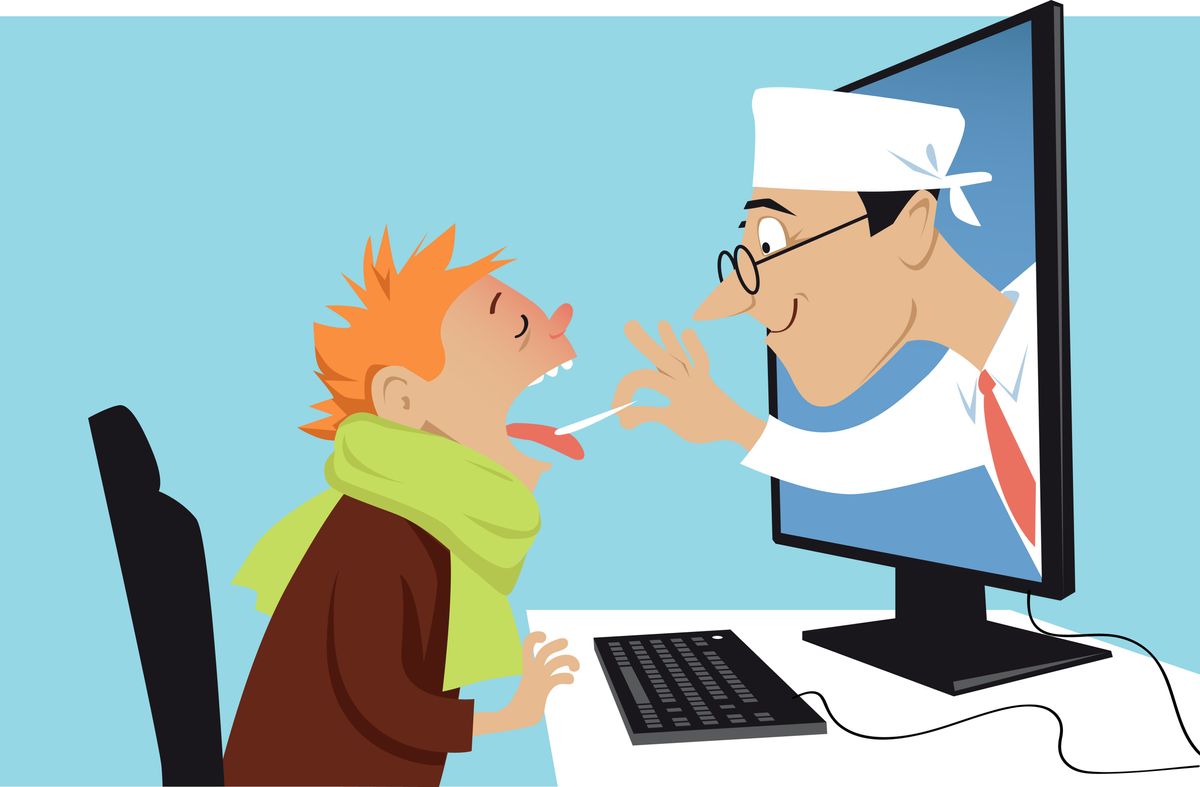The Rise of Telemedicine: Understanding Its Impact on HIPAA Security Compliance

Telemedicine is one such technology. Over the past few years, it has rapidly transformed how healthcare is delivered, making medical consultations as easy as a video call with a loved one. But with this digital revolution comes a fresh set of challenges, particularly when it comes to HIPAA Security Compliance.
Understanding Telemedicine
Telemedicine, at its core, is the provision of healthcare services using digital technologies. It's about bringing the doctor's office to the comfort of your home, providing medical consultations, follow-ups, and sometimes even diagnoses through video calls, phone calls, or chat.
For small businesses and startups, telemedicine offers a great opportunity to provide high-quality healthcare services with minimal physical infrastructure. However, it's not without its challenges. Offering telemedicine services means dealing with technical issues, providing a seamless user experience, and, crucially, ensuring the security and privacy of patient data.
In recent years, the adoption of telemedicine has accelerated dramatically. The COVID-19 pandemic played a significant role in this surge. With lockdowns and social distancing measures in place, telemedicine emerged as a practical and safe way to provide healthcare. But this rapid adoption also meant that many businesses had to confront the realities of HIPAA compliance in a digital context, some for the very first time.
An Overview of HIPAA and Its Security Rule
HIPAA, short for the Health Insurance Portability and Accountability Act, is a federal law enacted in the United States in 1996. While it covers several aspects of health care, we'll focus on the part that often makes business owners and startup founders break into a cold sweat - the HIPAA Security Rule.
The Security Rule is all about protecting electronic protected health information (ePHI), which is any individually identifiable health information created, stored, transmitted, or received in any electronic format. The Security Rule requires healthcare providers and their business associates to implement specific administrative, physical, and technical safeguards to ensure the confidentiality, integrity, and availability of ePHI.
Now, you may be wondering, "What does this have to do with my telemedicine service?" Well, if your business deals with ePHI in any way, it needs to be HIPAA compliant. Telemedicine, by its very nature, involves handling and transmitting ePHI - think video consultations, electronic health records, chat-based consultations, and so on.
Many startups are great at providing telehealth services, but they quickly realize they have to become experts at data protection too. Most telehealth apps handle a variety of ePHI, from patient records to real-time health data, and they need to ensure all this information is secure.
Understanding HIPAA and its Security Rule is the first step towards achieving this. They had to learn about risk assessments, encryption, access controls, and more. It is challenging, but necessary to ensure they are providing a service that is not just convenient and accessible, but also secure and trustworthy.
The Impact of Telemedicine on HIPAA Security Compliance
Telemedicine significantly changes the landscape of health data security. When healthcare services are delivered digitally, there are more points of potential vulnerability. For example, patient data is not just stored in a file cabinet in a doctor's office but can now be transmitted across networks, stored in cloud servers, and accessed from a variety of devices.
Each of these points represents a potential vulnerability that must be secured to comply with the HIPAA Security Rule. This can seem daunting, but don't worry. It's all about understanding what's required and implementing robust security measures.
So, what are the specific HIPAA requirements relevant to telemedicine?
First, there's the "encryption and decryption" requirement. This means that ePHI must be encrypted whenever it is being transmitted or stored electronically. This is particularly important in telemedicine, where data is frequently sent across networks.
Second, there's the "access control" requirement. This means that only authorized individuals should have access to ePHI. In a telemedicine context, this could mean implementing secure login procedures, using two-factor authentication, and having robust procedures to manage access rights.
Finally, there's the "audit controls" requirement. This involves implementing hardware, software, and procedural mechanisms to record and examine activity in systems that contain or use ePHI. It's all about monitoring and accountability.
Strategies for Achieving HIPAA Compliance in Telemedicine for Startups and Small Businesses
Achieving HIPAA compliance in telemedicine may feel like a daunting task. But with a strategic approach, you can navigate these waters effectively. Here are some steps you can take:
Implement Secure Telehealth Technologies
Start by choosing telehealth technologies that prioritize security. Look for platforms that offer end-to-end encryption, robust access controls, and comprehensive audit logs. Some platforms are designed with HIPAA compliance in mind and can provide a strong foundation for your telemedicine services.
We worked with a startup that initially opted for a generic video conferencing tool for their telehealth sessions. They soon realized that this tool lacked the necessary security features for HIPAA compliance. After switching to a HIPAA-compliant telehealth platform, they found it much easier to ensure the security of their patient data.
Conduct Regular Risk Assessments
HIPAA requires covered entities to conduct regular risk assessments to identify potential vulnerabilities in their handling of ePHI. These assessments should be comprehensive, covering all the systems, processes, and equipment used in the provision of your telemedicine services.
One small business we advised was initially overwhelmed by the idea of a risk assessment. They didn't know where to start. We worked together to break down their services into manageable parts, and they gradually conducted a thorough risk assessment that helped them pinpoint areas for improvement.
Provide Training for Your Team
Your team members are a critical part of your compliance efforts. Ensure they are well-trained on HIPAA requirements and the importance of protecting patient data. This includes everyone from doctors and nurses providing telehealth services to IT staff maintaining your systems.
A telemedicine provider we worked with made the mistake of assuming that HIPAA training was only necessary for their technical staff. They soon realized that their healthcare providers also needed to understand HIPAA, especially as they were the ones interacting with patients and handling ePHI regularly.
Use Available Tools and Resources
Thankfully, you're not alone in this journey. There are numerous resources available to help small businesses and startups navigate HIPAA compliance. This includes guides, checklists, and even software tools that can automate some aspects of compliance.
The Future of Telemedicine and HIPAA Compliance
Telemedicine is here to stay. Its adoption has surged in recent years, and with the ongoing digital transformation in healthcare, its growth is set to continue. But what does this mean for HIPAA compliance?
To begin with, as telemedicine becomes more commonplace, we can expect to see an increase in the scrutiny of telehealth services in terms of their HIPAA compliance. Regulatory bodies will likely focus more on ensuring these services protect patient data effectively. Therefore, businesses offering telemedicine services need to be proactive in ensuring they meet all HIPAA requirements.
A startup we advised recently was caught off guard by a HIPAA audit. They had assumed that as a small player, they wouldn't be a target for an audit. But HIPAA compliance is required regardless of the size of the business. This was a wake-up call for them, and they took immediate steps to strengthen their compliance.
Secondly, as the technology evolves, so too will the challenges and opportunities for securing health data. We may see new security features and tools that make compliance easier, but we'll also face new threats that we need to guard against. It's important for businesses to stay abreast of these changes and adapt their security measures accordingly.
Finally, startups and small businesses will have a crucial role in shaping the future of telemedicine and HIPAA compliance. By innovating in ways to deliver healthcare services and protect patient data, they can lead the way in developing telemedicine practices that are not only convenient and accessible, but also secure and trustworthy.
Conclusion
Navigating the world of telemedicine and HIPAA compliance can seem like a daunting task, especially for startups and small businesses. But as we've explored in this article, it's not just feasible; it's a vital part of offering a secure and trustworthy telemedicine service.
We started by understanding what telemedicine is and how it's transforming healthcare delivery. We then delved into the world of HIPAA, particularly the Security Rule, and how it applies to telemedicine. We examined the specific HIPAA requirements relevant to telemedicine and discussed strategies for achieving compliance. Finally, we looked ahead to the future of telemedicine and HIPAA compliance, anticipating the challenges and opportunities that lie ahead.
So, as you embark on your telemedicine journey, remember this: HIPAA compliance is not just a legal requirement; it's a cornerstone of a reliable and respected telehealth service. And with the right knowledge, strategies, and commitment, you can navigate this journey successfully.



